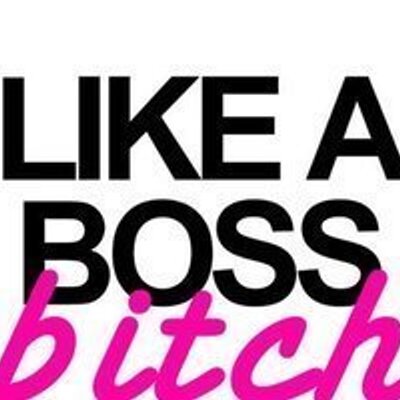
Bitch Boss vs Boss Bitch
Bitch Boss
The first time I was responsible for a big project, I messed up. Big time. I was tired and working two full-time jobs. The crew were volunteers; it was film school. I was a graduate supporting the production as a producer, production manager, catering, transportation, landlord, and a million other things. There was a lot of pressure to make it work. I completely lost it with the cast & crew one day when the mother of a child actor found a fresh roach (not the bug common to Florida) on set. Things were very tense after that, and no one had a positive experience on that shoot. I learned the hard way how to handle situations on set, but the damage was done.
Being called a bitch is hard. I’ve been called that name many times by my mother, by crew members, by supervisors, students, boyfriends, etc. Notable versions include: “stupid white bitch” and “low key bitch,” the latter is still a joke at work. It’s a default (read: lazy) response when a woman behaves in a way that makes someone else uncomfortable.
Self-reflection has led me to better understand my reactions and behavior. Was I making the other person uncomfortable purposefully? Was that comment snarky or rude? Yes, that person might have been a raging dick, but does that mean I need to match that behavior to make a point? The answer is no. Sometimes we lose our cool, I have been there, I will probably be there again. I’m a redhead; I’m feisty, I’m not nice. Does that make me a good supervisor? Absolutely not. We all need to be held accountable for our behavior, especially on the job. We are all pieces of a puzzle; we work together to make a bigger picture. There is not a situation where it is acceptable to be demeaning, patronizing, or harmful to another person. That’s not who we are, and it’s not what we would allow others to behave toward us.
“All people should be treated equitably and respectfully, regardless of their various identities. No matter how acclaimed, revered, or supported one’s art or one’s level of authority is, no one is above being held accountable.” -We Have Voice Collective
Boss Bitch
I look up to women who take no shit with grace. Confidence and respect are key. A Boss Bitch is confident, respectful, and assertive. This is the crucial difference between bitch boss and boss bitch: respecting others. We do not need to put others down to reach our ambitions. Remember there is a difference between being nice and being respectful. I’m not suggesting that we need to be nice to not be called names. Respect and positivity are the paths to success, empowering yourself and those around you. Easier said than done. This is my personal struggle every day, the choice to use my voice for positivity, to have a goal to be better. As an educator, I strive to be a role model for my students, to show them rather than just tell them what’s right or wrong.
Some people find confident, independent women intimidating. Good. Often women in male-dominated industries have to work harder to get to the same place as their counterparts. Many of my friends are Boss Bitches. They worked hard in their education and career, and they have confidence that I envy. Their career satisfaction is based on their achievements, not the perception of others.
“Bitch is a derogatory term; we shouldn’t use it at all.” Of course, it is, of course, it is inappropriate. I’m not suggesting that it is acceptable to refer to anyone in such a way. Bullies who patronize and demean others are out there; we may be guilty of it ourselves at times. Feelings of positivity and community are not often part of our industry, as we always seem to be competing against each other. This is detrimental to us as workers, as teammates, and as humans. It’s our responsibility as role models, leaders, educators, to be the better person. To demonstrate how we expect others to behave on the job. We can be tough, knowledgeable, experienced, snarky, and still be great leaders.
“It appears that where #BitchBoss is clearly an indication of frustration #BossBitch is a term of endearment. Isn’t language fun?
It’s like racquetball! For your mouth!” – Chris Traeger, Parks and Recreation